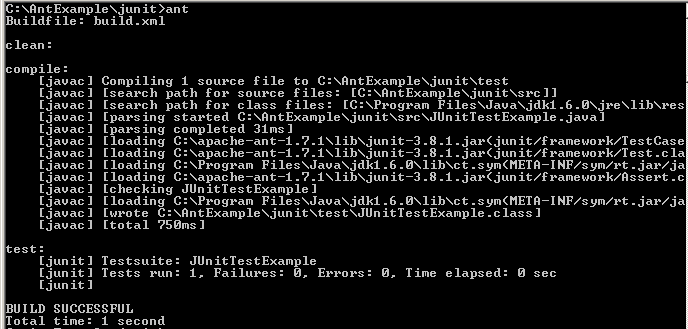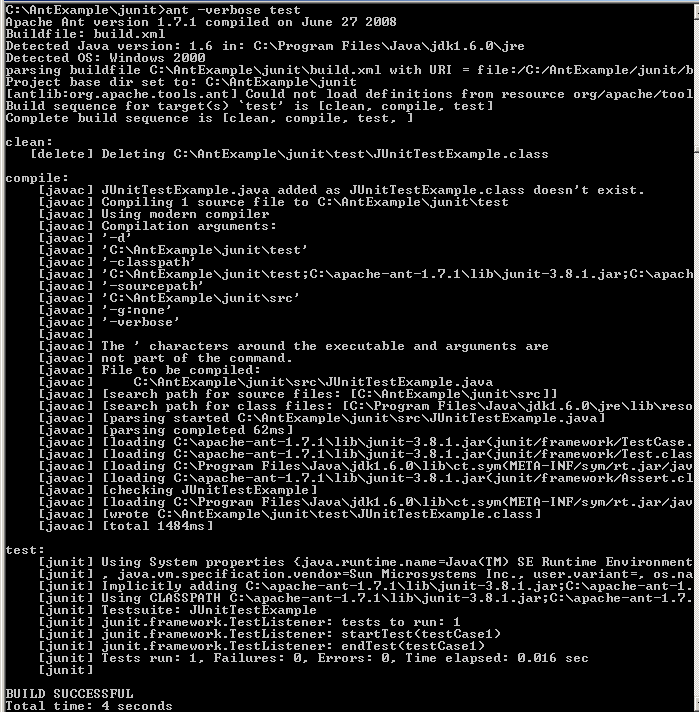Ant and JUnit
This example illustrates how to implement junit test case with ant script. This is a basic tutorial to implement JUnit framework with ANT technology. Before creating any test case you will need Java compiler, Ant and JUnit. You will also need junit.jar in your Ant's library folder.
Junit is used to test the application in Java. It can test Java classes and even the complete project. Junit provides extensive functionality for testing the applications. It can unit test application and even configure the application to run the integration test in the application.
Ant is very effective tool for the compiling and building the Java based application. With the help of JUnit and other tools it can streamline the process of building, testing and deploying the application on the servers.
So, Ant and JUnit provides best solution to the developers for building the
applications.
Download the junit.jar file from the given link http://junit.org/ and paste this jar file in ANT_HOME/lib
folder. Then create a build.xml file as shown below.
|
|
Create
a JUnitTestExample.java file in the src directory as given below.
|
import
junit.framework.*;public class JUnitTestExample extends TestCase{ public void testCase1(){ assertTrue( "TestExample", true ); }} |
If
you run the source code with ant command, then the following output will
be displayed.

If you compile with ant -verbose test command, then the following
output will be displayed.

